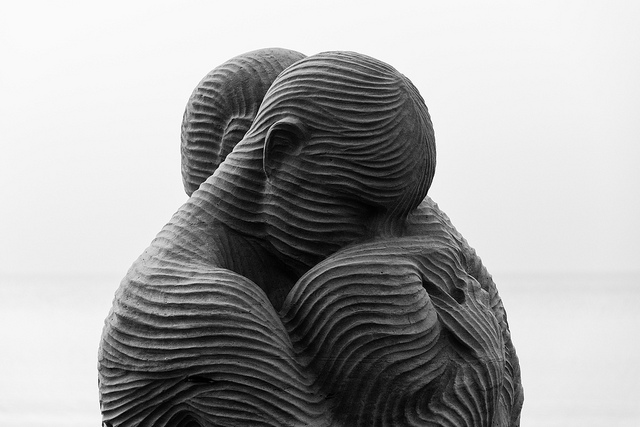You know that moment when you sit down on a plane and instantly realize there’s a screaming child right behind you who’s just starting to amp up into a full blown tantrum? Well, I had one of those just a couple of days ago.
But instead of feeling annoyed by the situation, I found myself sinking into love for this child who was completely expressing his truth.
He was yelling and crying, “I want to sit with daddy.” And his mom was saying, “You can’t sit with daddy. You have to sit with me. Stop crying this minute. Aren’t you happy we’ll be home soon?”
The little boy didn’t stop crying, of course. Instead he spoke his truth. “I want to sit with daddy and I don’t want to stop crying and you can’t make me.”
My heart broke open for him, not because his mother was exhausted and trying her best to get him to stop crying, but because he had no reason to stop crying.
He wanted to sit with daddy, he didn’t want to stop crying and he couldn’t care less about going home. He was uncomfortable and he just wanted to express his discomfort. And nobody—not his mom or his stuffed shark or a bag of cheesies—was going to stop him. He felt like crying and he couldn’t care less about faking being grateful for being home soon.
I knew exactly how he felt. I’ve been there many times in this expression of emotions that is messy and loud, but also very, very true.
But this wasn’t acceptable behavior for a little boy on the airplane, and perhaps, like for many people, it wouldn’t be acceptable anytime in his life. So his expression of his emotions in that moment was squashed, like it is for most of us most of the time.
And this is why gratitude can really suck.
You see, the other day, my heart was aching and every part of me felt tender, as if a layer of my skin had been peeled off and I was experiencing the world through exposed young flesh. It all felt like too much. But then I looked around me and saw my healthy children, my loving spouse and the beautiful natural world I was immersed in and thought I really should be grateful.
But instead of feeling full of bliss and love for the world and everything in it, including myself, I was hit with a full-blown shame attack that said, “You don’t deserve to exist because you’re being a bad person who thinks bad things and doesn’t appreciate what you have.”
I was shaming myself with an expectation of gratitude. I was “should-ing” myself into thinking my feelings were inadequate and that I should be feeling something different; something softer and sweeter and more socially acceptable.
I was being my own parent saying, “Stop crying! Aren’t you happy that everything is great right now?”
And of course, I wasn’t happy or grateful. I was sad and mad. I just was.
And this is when gratitude backfires—when we force it. When we try to add a layer of gratitude on top of what we really feel. Because gratitude isn’t better than anger, it isn’t healthier than sadness and it isn’t cleaner than confusion.
We need all of our feelings. There’s a lot of suffering in the human world; a lot of situations that need our anger, our sadness and our confusion. So, let’s not get rid of them.
And gratitude is beautiful, too. When we’re feeling in love with the world, holding a new baby, leaning against a big, bold tree, drinking a glass of clean water and are overcome with a sense of thanks for all the goodness in the world, we have this amazing experience we call gratitude. And it will come to all of us in its own time.
But when we force gratitude on to our real feelings, we’re just adding suffering to our suffering. So instead of telling ourselves what we should be feeling, we can just feel whatever is in us to be felt.
This isn’t natural to us. We’ve all been shushed and told a different feeling would be better than the one that’s arising in us most of our lives. That’s why this suggestion to just feel whatever is in ourselves to be felt is revolutionary.
And if it is gratitude, then wonderful, and if it is “everything sucks and gratitude sucks the most,” then that’s wonderful, too.
Because all feelings are welcome for the simple reason we are feeling them.
Author: Ruth Lera
Editor: Evan Yerburgh
Image: Flickr







Read 0 comments and reply